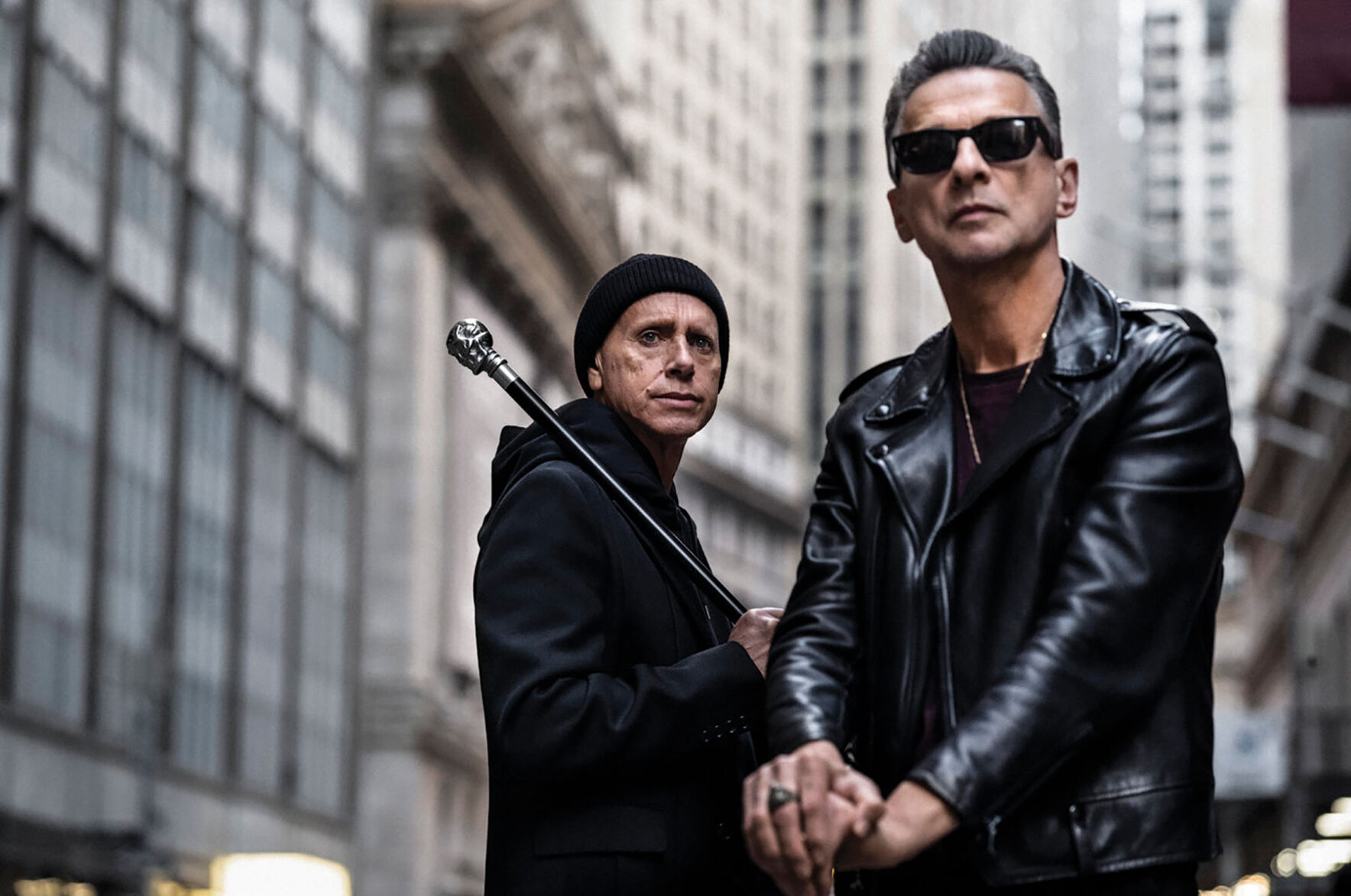
Depeche Mode
The junior high axiom was that Depeche Mode meant “fast fashion,” a phrase encompassing style and ease — something foreign and flashy and suffused with feelings still at a remove from the day-to-day existence of life in the ’80s. “The world we live in and life in general,” Depeche Mode’s Martin Gore called it on “Somebody,” and that helped us get an emotional fix on the boys from Basildon. Technical innovators with the eyes of cold-hearted scientists and hearts like absinthe-plied poets, The Mode built a fan base through sincerity, soundscapes and a cultivated sexuality that invited curious misfits, women who wanted more from life, and straight dudes who wanted to dip a toe into synth-pop with open, occasionally studded arms.
So what does Depeche Mode mean now?
The 2022 death of founding member Andrew Fletcher is the kind of moment that would shake any collective to their foundation. What he brought to the band is not easily qualifiable, certainly not among rockists and people stuck in antiquated paradigms. But his absence is felt around all things Depeche like a radioactive cloud.
I mean, the band’s current Memento Mori World Tour could have been a perfect occasion to reunite with Alan Wilder, or hell, even see if Vince Clarke wanted to step back behind the DM touring sequencers for the first time in more than 40 years. But that’s a weird and heady combination of nostalgia and wishful thinking. For a band who eagerly and openly explored all manner of hurts in their records, it’s the ones dealt behind the scenes that have continued to map out the story of Depeche Mode.
This band has been there at so very many divergence points in the lives of its fans. The Music for the Masses/Violator/Songs of Faith and Devotion triptych serves as the soundtracks to so many people’s journey into exploring kink and BDSM. “Precious” may be the greatest divorce-core single since the one-two punch of Elton John’s “Nobody Wins” and ABBA’s “Slipping Through My Fingers.” Remember in the mid-’80s when “Blasphemous Rumours” and XTC’s “Dear God” were direct challenges to right-wing Reagan-era religion; these were 91 Rock anthems and remained mixtape mainstays for most of the intervening almost-four decades.
Their legacy is unimpeachable — they got inducted into the Rock and Roll Hall of Fame in 2020, which is no easy feat for a band that had neither drummer nor guitarist for their first decade in existence. Their 1989 documentary 101 defiantly demonstrates that a band can rock despite working only in the realm of the electronic, the sequenced, the recorded. The fact that they have subsequently added touring drummers and guitarists is no mark against them — artists evolve over time, sounds expand and develop. And the rock establishment still demands a certain degree of fealty to their definition of what defines musical artists.
The Memento Mori Tour isn’t just a heavy-ass concept to process, right there in the title — if anything, it’s speaking truth to the underlying, often unspoken aspect of countless artists touring today. Time is short. Tomorrow is promised to no one. I mean, hell, I made damned certain to see DM on 2009’s Sounds of the Universe Tour because of Dave Gahan’s previous four brushes with death. Memento Mori, their new LP, has a stark quality, simultaneously ornate and spare, illustrating through its structure the gaping void at the center of the band (deeply ironic considering how Fletch’s contributions were rarely on the record). And yet this tour and album are defiant statements about the communion between band and fans, a drawing of strength from grief and the chaos of a most uncertain world. They may have called their 1986 holy text Black Celebration, but now it defines them — what they do, what they are, what they offer — and their fans, who are now pilgrims to the rite, waiting for the night.





